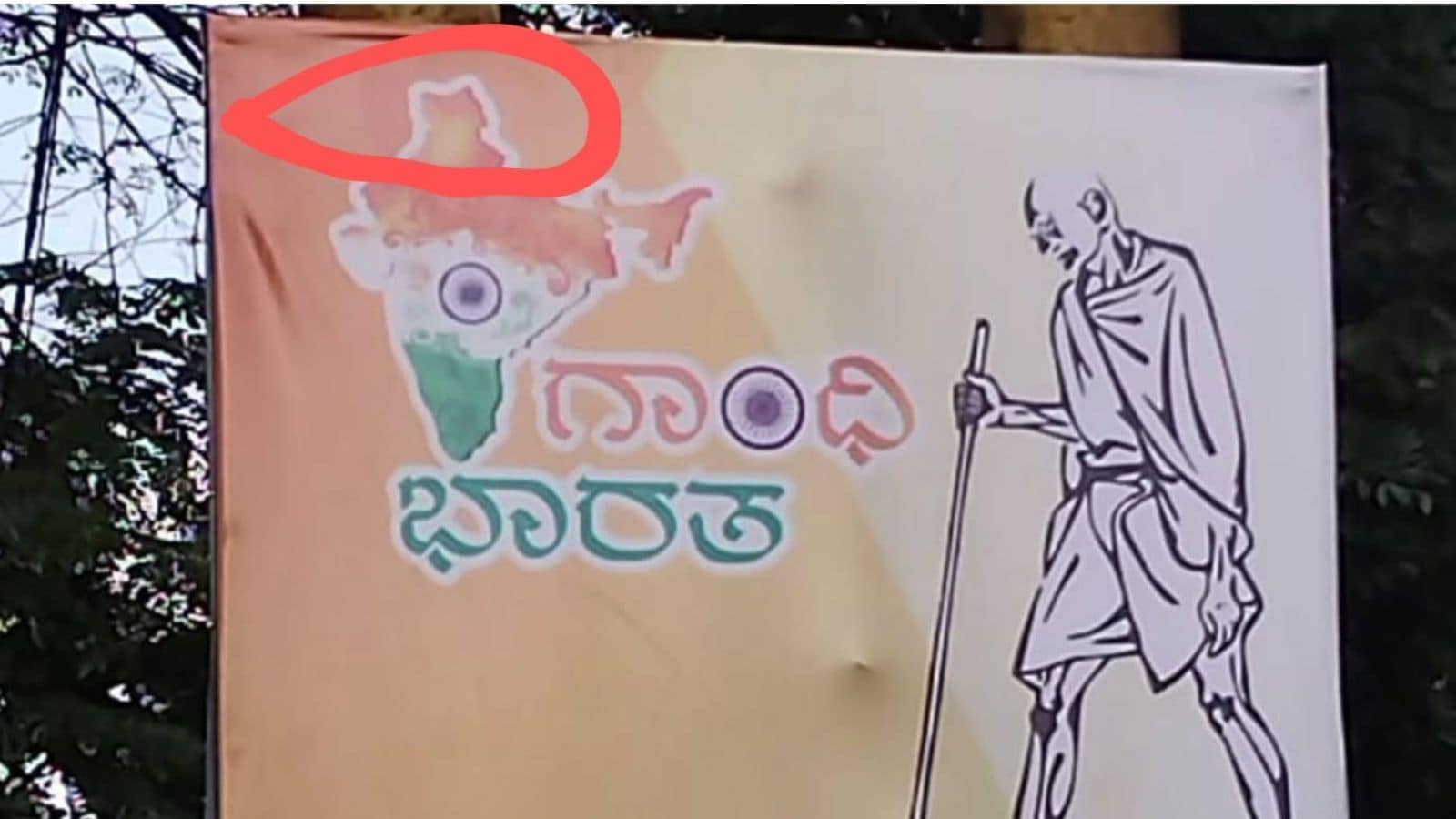 |
|
The recent centenary celebration of Mahatma Gandhi's 1924 Congress session in Belagavi has ignited a fierce political battle in Karnataka, pitting the ruling Congress against its NDA rivals, the BJP and JD(S). The two-day event, intended to commemorate a significant moment in Indian history, has instead become a focal point of acrimonious accusations and protests. The core of the controversy revolves around the display of what the BJP and JD(S) allege is a 'distorted map of India', depicting Kashmir as part of Pakistan. This has been vehemently denounced by the opposition parties as a blatant disregard for India's sovereignty and a cynical attempt to appease a specific voting bloc. The BJP's strong reaction, marked by planned protests and press conferences, underscores the deep political ramifications of this seemingly minor detail. The accusation that state funds have been misused in staging a lavish event further fuels the opposition's anger, highlighting a deeper concern about the allocation of public resources and the transparency of government spending.
The BJP's Karnataka president, B Y Vijayendra, led the charge against the Congress government, organizing a protest in front of the Mahatma Gandhi statue in Bengaluru. His strong words, describing the current Congress as a 'fake Congress' and accusing them of abandoning the ideals of Gandhi and Ambedkar, reveal the depth of the political animosity involved. The accusations go beyond simply criticizing the map; they question the very legitimacy of the Congress party’s claim to Gandhian principles. The use of social media, especially Twitter, by the BJP Karnataka unit in highlighting the alleged map distortion exemplifies the contemporary political landscape where rapid dissemination of information and the power of visual imagery play a crucial role in shaping public opinion. The visual nature of the alleged map distortion allows for easy sharing and amplifies the political impact of the controversy.
Adding to the political firestorm, H D Kumaraswamy, the Union Minister for Heavy Industries and Steel, echoed the BJP's criticism, employing scathing language to describe the event as a spectacle of 'fake Gandhis' parading at the taxpayers' expense. Kumaraswamy's criticism, delivered on the sidelines of an event in Mandya, cleverly juxtaposes the Congress's planned programs celebrating Gandhi next year with the supposed absence of Gandhi's image at the current event. This comparison reinforces the opposition's narrative of the Congress being hypocritical and out of touch with the ideals it claims to represent. The absence of Gandhi's image from the event’s promotional material, juxtaposed with the prominent presence of Congress leaders, lends credence to the opposition’s accusation of self-serving motives and the exploitation of a historical figure’s legacy for political advantage. The use of such strong rhetoric indicates the high political stakes involved and suggests a potential long-term impact on the political dynamics of Karnataka.
The incident raises important questions about the role of historical events in contemporary politics. While commemoration is essential, the controversy underscores the potential for such events to be exploited for political gain. The use of symbols, particularly the national map, in political messaging is a sensitive issue, and the controversy highlights the need for greater care and consideration in planning and executing public events with historical significance. The reaction from both sides, characterized by strong accusations and planned protests, reveals the deeply partisan nature of Indian politics, and highlights how even seemingly small incidents can quickly escalate into major political battles. The fallout from this controversy is likely to extend beyond the immediate event, potentially shaping the political landscape in Karnataka in the lead-up to future elections.
The event’s intended purpose—celebrating the centenary of a pivotal moment in Indian history—is overshadowed by the accusations of political manipulation and disregard for national symbols. The differing interpretations of the map incident, and the contrasting perspectives on the appropriateness of state-sponsored spending, underscore the deep divisions within Karnataka's political landscape. The allegations of misuse of state funds warrant further investigation to ensure transparency and accountability in government spending. This controversy provides a compelling case study of how seemingly minor details, when amplified through the lens of political rivalry, can create significant political upheaval. The long-term consequences of this event remain to be seen, but it's clear that the controversy has significantly damaged the Congress’s image and provided ammunition to its political opponents.
Source: BJP-JD(S) attack Congress over Belagavi centenary event; posters stir row
